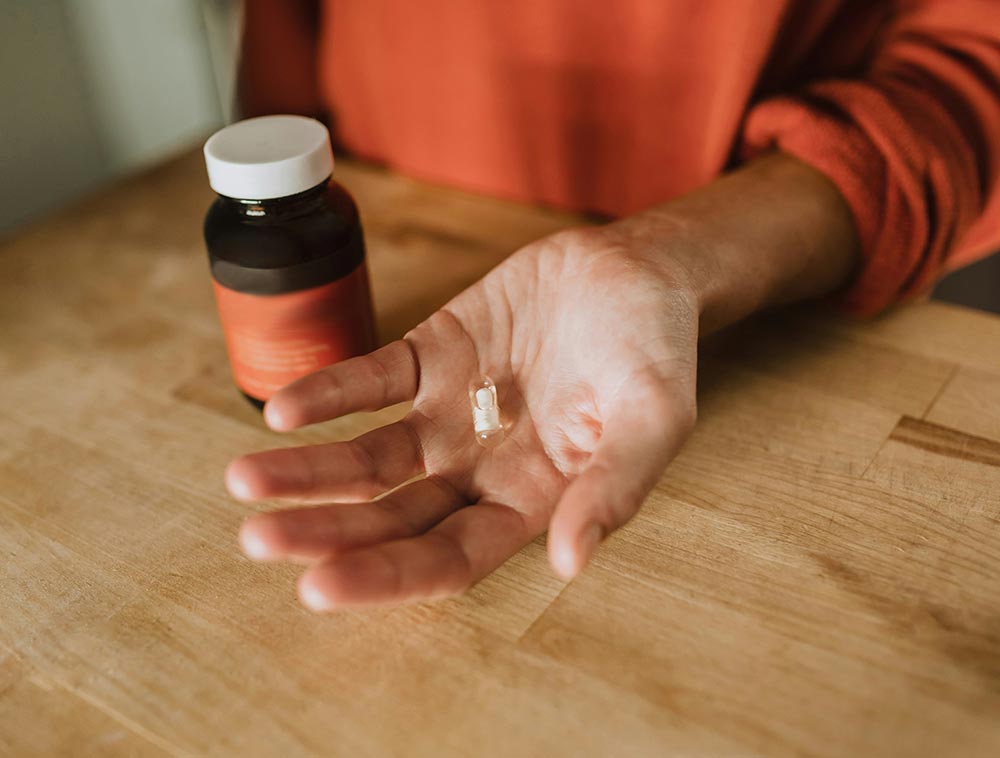
For many people, impulsivity or impulsive behavior and risk-taking behavior go hand-in-hand with substance use disorder or “addiction”. This means that, even when completely sober, people with substance abuse problems are more likely to engage in impulsive decision-making, risk-taking behaviors, and otherwise very quickly jump to things. However, impulsive behaviors have a complex relationship with addiction and substance abuse.
For example, impulsive behaviors are one of the leading risk factors behind substance abuse. People who are impulsive are less able to say no, more likely to make risky decisions like substance use, and more likely to take actions that could put them in danger.
At the same time, substance abuse can increase impulsivity and sensation-seeking by changing how the brain works, which means that impulsivity will get worse as you continue to use.
That’s further complicated by the fact that people who are very impulsive often have complications from trauma, stress, and adverse childhood experiences. This means that the same factors which increase the likelihood of addiction are also likely to increase impulsive behaviors.
Impulsivity and Pleasure-Seeking
The thing that most people think of when they think of impulsive behavior is pleasure-seeking. Here, impulsive people may have a hard time saying no to things that make them feel good. They may quickly and with little thought do high-risk activities that result in adrenaline and a rush of feeling good. Think impromptu car races, binge drinking, binge eating, skipping school or work, etc.
These kinds of behaviors are often driven by a desire to feel good, usually as a result of learning poor coping mechanisms, trauma as a child, or brain development.
In some cases, pleasure seeking can look fairly normal. In other cases, it can look like seeking out extreme experiences, akin to going after roller coaster rides and bungee jumping. More often, it means someone who drinks or uses drugs, goes out too much, and indulges in fast food, sugary drinks, and other chemical ways to feel good.
Eventually, that puts you at risk of substance use disorder, because it means you’re exposed to substances, sometimes very regularly.
Sensation Seeking after Exposure to Drugs and Alcohol
The more you use drugs and alcohol, the worse sensation seeking is likely to get. For many people, this means that substance abuse results in the brain reducing its production of serotonin, dopamine, and oxytocin. That means you feel less in response to whatever you’re doing. Therefore, you need more of the drug, the alcohol, or an even more gratifying experience to feel the same amount of pleasure from it. That quickly deteriorates into a pattern of escalation that can become dangerous.
As a result, using substances for sensation seeking very often results in a chronic condition with patterns of building tolerance, increasing usage, and dependence.
Stress Response
Impulsive people often use sensation seeking to manage stress and to feel good around negativity. As they use drugs and alcohol to do so, they reduce their ability to feel good in other ways, while increasing stress from mental and physical health problems, job stress, interpersonal relationship turbulence, and hangovers. That means an increase in stress and an increased need for sensation-seeking behavior.
As a result, people who are in this position often need to feel good more and more just to cope with daily life. The stress response refers to how the brain changes to adapt to drug use, which results in a vicious cycle where you feel bad and want to do something that feels good, but nothing feels as good as it used to, so you keep using more.
Get Your Questions Answered
Our expert & caring staff on site are available 24/7. Call us today.
Self-Medication
Self-medication is a very closely related phenomenon to both the stress response and sensation seeking. However, here, the individual is specifically drinking to feel “not bad” rather than to “feel good”. That makes this a different response. However, it is one that impulsive people are extremely vulnerable to. Here, people are very likely to:
- Drink alcohol to destress
- Take extra pills or more than their prescription in case of pain
- Use medication outside of a prescription
- Preemptively take painkillers or drink to prevent stress and pain
- Feel like they need a substance to cope with a problem

People who use substances to self-medicate typically start out doing so on an impulsive basis. “I feel bad and I know this will make me feel better”. However, like with sensation-seeking, it can very easily get out of control. That’s especially true when people self-medicate for stress, chronic illness, or other frequently recurring issues. And, with stress, drinking or using to cope with it actively makes the situation worse, because drinking and using do eventually create more stress in terms of financial stress, relationship friction, fatigue, reduced capability at work, etc.
It also means that the people who are most likely to be vulnerable to impulsivity are also the people most likely to be vulnerable to substance use disorders. That means people with recurring, existing, or chronic mental health problems from stress, depression, anxiety, or a mental health disorder.
Adverse Childhood Experiences and Impulsivity
The Adverse Childhood Experience (ACE) study was conducted during the 90s, with over 17,000 participants at the Kaiser Permanente and the Centers for Disease Control and Prevention. The study tracked how trauma at an early age impacted brain development as well as vulnerability to physical and mental health disorders. It found that more exposure to traumatic experiences resulted in an increase in impulsive and risk taking behavior. It also found that traumatic experiences before the age of 14 were significantly likely to impact physical and mental health problems, greatly increasing vulnerability to substance use disorders, mental health disorders, and even physical illnesses.
Therefore, the same factors that result in impulsive behaviors also result in substance use disorders.
In Short:
Impulsive behaviors increase risk of substance use disorder by increasing exposure to substances. They also make it harder to say no to further exposure because of sensation seeking and self-medicating patterns. People who are impulsive look for fast and easy fixes to stress, strong and negative emotions, and problems in their life. They also want to feel good, to experience highs, and to escape when they want to. That means impulsive people are very vulnerable to substance abuse. In addition, impulsivity gets worse as you use drugs and alcohol, which exacerbates the original issue further.
Getting Help
If you or a loved one is struggling with addiction, it’s important to reach out and get help. Today, your treatment options include behavioral therapy like CBT, which will help you to assess the underlying reasons behind addiction, to cope with stress in a healthy way, and to build healthy responses and behaviors that can help you to get in control of impulsivity, cravings, and difficulty managing substances in a healthy way. Addiction is a complicated disorder that’s impacted by hundreds of factors ranging from stress and environment to genetics and upbringing. At the same time, you can learn to manage it and you can get in control of your symptoms and your life. That may take months or even years of therapy, but having risk factors and having personality that contributes to a vulnerability to addiction does not mean you’re stuck with it. There is help and it will allow you to get your life back.






